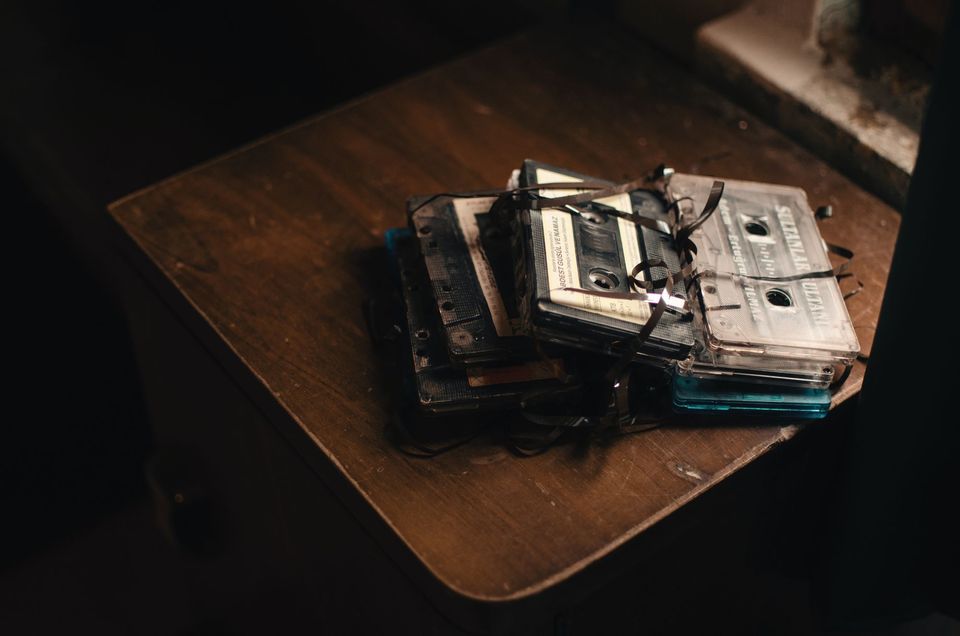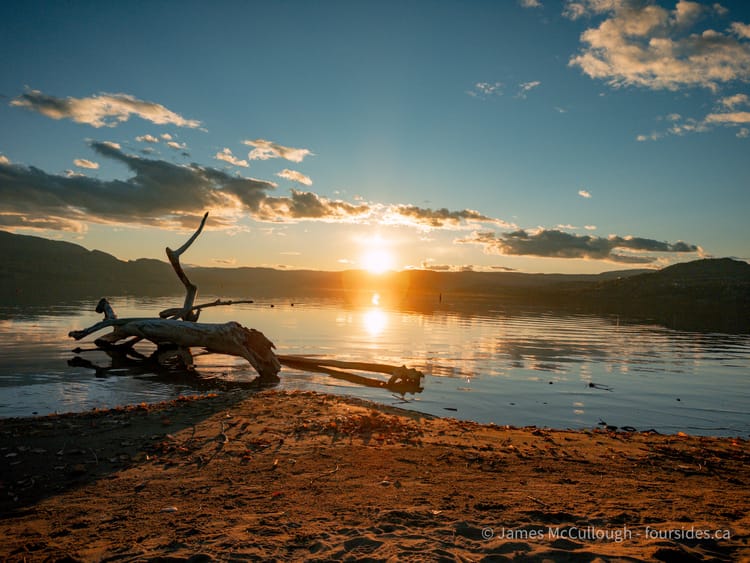Chuck Klosterman’s ‘The Nineties’

I'm so happy 'cause today I found my friends, they're in my head
I'm so ugly, that's okay, 'cause so are you, we broke our mirrors
Sunday mornin' is every day for all I care and I'm not scared
Light my candles in a daze 'cause I've found God— Nirvana, “Lithium”
The nineties began on January 1 of 1990, except for the fact that of course they did not. Decades are about cultural perception, and culture can’t read a clock.
— Chuck Klosterman, ‘The Nineties: A Book’
Thus begins ‘The Nineties,’ a fantastic book full of moments of nostalgia and information that I was simply oblivious to for multiple reasons. For Klosterman, the nineties began with the release of Nirvana’s ‘Nevermind’ album, released in September 1991; for me, the easiest marker would be the fall of 1989 when I moved to Whitehorse, Yukon from Regina, Saskatchewan, turning 10 that November, but the more significant moment would be in 1994 when my family moved into a house that we built in a new subdivision of Whitehorse (nearly 15 years old). That moment stands out for many reasons (a new home! trails and forest to explore behind the house! My own room!!!) but in terms of “cultural perception” the main reason was having a television in the basement, away from parents, and having access to MuchMusic and TSN TV channels, both creating a love of music and sport.
Living in Whitehorse in the 1990’s was very different from growing up in most city centres of Canada. Having only one cable provider, the channel selection was extremely limited for starters. So limited, I don’t recall watching much television at all at our other homes before then, apart from the childhood classics of Mr. Dressup, Fragglerock, Looneytunes, and Mister Roger’s Neighbourhood, all of which were available on CBC. Radio was also extremely limited (and still is to this day) with only a few stations: CBC Radio (snooze fest for a teenager) and a few community stations that mainly played folk or classic rock.
The biggest annoyance about growing up in Whitehorse was the limited selection of movies. Whitehorse only had two movie theatres (still does) with two screens each. To make matters worst, they were owned independently of each other. That meant that there was a very strong possibility that they would be both showing the exact same movies, or at least one of the same movies. When you wanted to go out to the movies, you had a selection of at most four movies, and, at worst, two. The kicker was there was usually a 3-4 week delay between the release of a movie and when it arrived in Whitehorse.
Of course, everyone growing up there had the same cultural restraints and learned about different books, movies, or music in similar ways. The only sense of relief to these constraints were trips “down south,” the term used for travel outside of Whitehorse to Vancouver or Edmonton (primarily) or further south for the lucky few, and being able to experience music through MuchMusic or reading the album reviews in Rolling Stone. There was a major exception in my family: road trips.
Both of my parents were Americans when they moved to Canada in the early 70’s. My mom’s family was partially located in Western Canada (two brothers and her parents) with one sister in Minnesota (a third brother is Australia). My dad’s family has been in the United States since he moved away, mainly in Wisconsin. With the extended family being located down south, my family went on road trips every other year to visit everyone and to experience a real summer.[1] From Whitehorse to Platteville, Wisconsin, where my grandparents and other family lived, is roughly 46 hours by car. One way.
That meant a lot of time listening to music. We joke about it in the family now that we can remember trips based on the tape (later CD) rotation. One of the albums that was on rotation one summer was Crash Test Dummies (the album was ‘God Shuffled His Feet’) which has a play time of 45 minutes. That meant in a rotation of 6-10 albums, we probably listened to that album 5-8 times, per trip. We tended to buy new music at our end destination, for obvious reasons, at trips to HMV, Costco, or Sam Goody’s in the US, to help expand our music tastes.
Thankfully, two advances helped resolve this problem. The first was the discovery of Columbia House[2], the CD club that allowed you to order new music incredibly cheap compared to buying in the store. I am fairly certain this was introduced to us by my mom’s sister or one of her kid’s when we were in awe at the amount of music on the shelves in their house.[3] That meant the music on rotation was greatly increased (maybe only hearing Crash Test Dummies once per trip). The second advancement was the Sony Discman, the portable CD player. The one I remember was released in 1995, so I likely owned it as a 16 or 17 year old. That meant freedom to listen to any music I wanted, as long as I had working batteries.
The video for ‘Smells Like Teen Spirit’ was not more consequential than the reunification of Germany. But Nevermind is the inflection point where one style of Western culture ends and another begins, mostly for reasons only vaguely related to music.
— The Nineties
That brings me back to Klosterman’s ‘The Nineties.’ Nirvana’s ‘Nevermind’ came out in 1991, which I missed at its peak because of the lack of music culture in Whitehorse, and perhaps being too young (nearly 12 years old), but I did immerse myself in the music a few years later, especially after Kurt Cobain died in April 1994, and the release of their ‘Unplugged’ album that fall.
Of course, there is much more to the 1990s than music, which Klosterman touches on. It is impossible to cover all the events that happened in that decade that had cultural significance, but I think Klosterman does an admirable job hitting all the important newsworthy and cultural markers. His approach is less of a documentary and reporting on how we view things now, but more trying to capture what it felt like to live in that moment. What it felt like to live through the sound of the dialup modem connecting to the internet; to witness the birth of 24 hour cable news television with the Gulf War and the OJ Simpson trial[4]; to still be in control of technology and how we used it.
Being in my early 40s now, there is plenty to remember about the 1990s and how it influenced my likes/dislikes, but there is even more about that time that we take for granted now more than ever. The biggest reminder for this happened in, of all places, Cleveland, Ohio, at the bus terminal on my way to Chicago.
I was travelling from Syracuse, New York, on my way back to Canada by Greyhound, for reasons. It was August of 2005. At the bus terminal, late at night, I was waiting for my next bus to leave, when I was approached by a man asking for help. Throughout the trip to that point, I hadn’t talked to anyone apart from showing the bus driver my ticket to get on the bus. This man was wearing plain, grey sweatpants and sweatshirt, mid-40s, asking for help. At first I was puzzled as to why he would be asking me for help, that’s when he told me his story.
He had just been released from Chillicothe Correctional Institution in southern Ohio. Chillicothe happened to be the hometown of my maternal grandma, so I recognized the name right away. He had been in jail for over 10 years, not for murder, he reassured me, but tax evasion or a different white collar crime. He had been released earlier that day, with no way to contact anyone. He did not know how to use an ATM, had never had to buy water, had never owned a cellphone, and barely understood what the internet was. He was living in a foreign world after being removed from it for over a decade. He was completely lost on where to begin.
Listening to Klosterman read his book took me back to that conversation with that former inmate. 10 years feels like a long time, but the 1990s felt much longer than ten years. So much changed over that decade, arguably more than any other preceding decade, but definitely since then.
When I think about how we were living ten years ago to now, not much has changed. Yes, we have better phones in our pockets (iPhone was released in 2007), but we still watch Netflix (streaming started in 2007); still own laptops but desktop computers are more important as people work from home more than coffee shops; we drive more electric vehicles than before (Tesla released its first car in 2009), but not significantly more; still pay for goods by tapping a card (Interac Flash was introduced in 2011 in Canada).
The nineties was a major stepping stone for the advancement of human civilization, culturally and technologically. Listening to Klosterman was an enjoyable experience- reliving those cultural milestones that had a large portion of the population in awe of the achievements and disappointments of our shared idols: Kurt Cobain, Michael Jordan, Bill Clinton, Pamela Anderson, and more.
This book is highly recommended for people wanting to experience the nostalgia of the time when we were able to focus on our love or hatred towards one person/topic without distraction.
Honestly, how is one author or blog post able to cover all the things that happened in 1990s? Some things that weren’t mentioned in the book.
- Rwandan and Bosnian genocide
- death of Princess Diana
- Pamela Anderson and Tommy Lee sex tape[5]
- 1992 and 1993 World Series, won by Toronto Blue Jays, a huge event in Canada
- 1993 Stanley Cup won by Montreal Canadiens, last Cup won by a Canadian team
- The rise of Jim Carrey (The Pet Detective, Dumb and Dumber, The Mask) and Robin Williams (Hook, Birdcage, Good Will Hunting)
- Comic movies becoming more popular with Batman Returns, Teenage Mutant Ninja Turtles, The Crow, leading to the success of the superhero movies of the 2000’s
- Disney classics, Beauty and the Beast, Aladdin, and Lion King came out
- Harry Potter was released
- The rising popularity of electronic music with The Prodigy, Moby, Fatboy Slim, and others, featured in movies like The Matrix
Yukon summers are infamous for being very mild, reaching temperatures of 25C at most. In 1998, after I graduated high school, Whitehorse experienced a heat wave of temperatures around 29C (84F) ↩︎
Yes, it still exists, with a website from the 1990s. ↩︎
Quick sidetone to mention that a lot of my music discovery as a teenager was due to my slightly older cousins, Peter and Laura. I know Peter turned me onto Nirvana and I ended up purchasing ‘In Utero’ as my first CD after hearing the band at his house. I remember Laura being incredibly excited and leaving to see Stone Temple Pilots live in Minneapolis, an hour away, circa 1994. A quick Google search shows it is likely to have happened August 1994 with the Meat Puppets as openers(!) ↩︎
My grade 10 Social Studies AP class actually paused to listen to the verdict be delivered - on the radio. ↩︎
Watch the excellent TV series: Pam and Tommy ↩︎






Member discussion